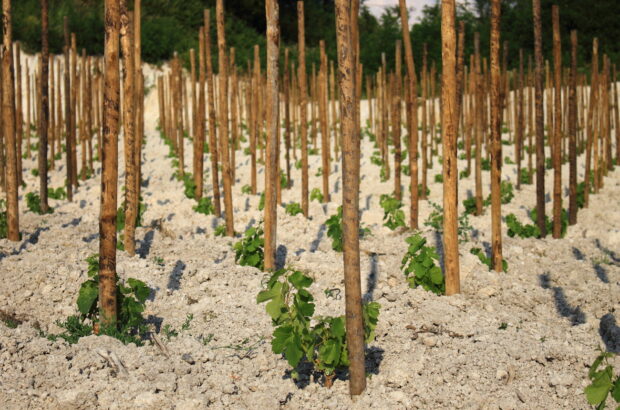Copy updated as of 16:30 UK time on 17 March.
California tasting room closures
Napa Valley Vintners said its board had voted unanimously to back California Governor Gavin Newsom’s ‘recommendation to close wineries’ visitor facing operations, including winery visitor centres and tasting rooms in California’.
Newsom’s comments came as US president Donald Trump declared a national emergency over the coronavirus, or Covid-19.
Napa Valley Vintners said, ‘During this unprecedented time, the board agrees that the health and wellbeing of the community is the highest priority.
‘Vineyard operations and winery production, as well as essential business operations, will continue with enhanced measures following Centers for Disease Control (CDC) guidelines for a safe working environment. Wine orders will continue to be taken and shipped.’
California’s Wine Institute said, ‘We are working with the Governor’s office to implement recommendations to reduce the exposure and spread of the disease by limiting visitor access to winery tasting rooms for purchase and pick up only, intensifying cleaning and sanitation procedures and following the guidance of the CDC and California Department of Health.’
Some wineries had already taken the decision to close visitor centres.
Jackson Family Wines said at the weekend that it would shut its tasting rooms in Oregon and California from 16 March, although it said tasting room staff could still answer questions by phone and email, and process shipments.
Governor Newsom also said California restaurants should reduce their capacity by 50%, to help space out diners.
Officials elsewhere in the US have gone further, with New York mayor Bill de Blasio ordering restaurants to shut.
Orders or advice for restaurants and bars to close have become a familiar theme of the past week as governments of several countries have enacted emergency measures to reduce social gatherings – in the hope of slowing the spread of Covid-19 and reducing the burden on health services.
UK restaurants facing crisis
Restaurants and bars in the UK need urgent government support to cope with the crisis caused by coronavirus, or Covid-19, said trade body UK Hospitality last night (16 March).
‘Over the past few weeks the industry has suffered unprecedented drops in visits and many business are already on their knees,’ said the UK Hospitality’s CEO, Kate Nicholls.
While the priority of officials has naturally been to slow down the spread of the virus, which has claimed more than 6,500 lives globally, UK chancellor Rishi Sunak was reportedly set to announce greater financial support for the travel and leisure sectors at the government’s daily press briefing on Tuesday (17 March).
Official advice that people should avoid bars, restaurants and pubs has left the sector in limbo, with UK Hospitality arguing that only an outright ban would meet many venues’ insurance policy terms.
An online petition calling for clearer government guidelines and more financial support for the sector had gained more than 77,000 signatures by this morning.
Wineries in lockdown
French officials have now issued forms that people must fill out to explain their reasons for leaving the house.
In Bordeaux, where the annual en primeur tasting week has been cancelled, wineries faced the issue of complying with government orders while also dealing with an early bud break in some vineyards – thanks to the mild winter.
In Italy, one of the first countries to effectively introduce a nationwide lockdown, winemakers and trade bodies spoke of their determination to carry on but also do the right thing.
‘It is surreal,’ said Stefano Gagliardo, of the Gianni Gagliardo winery in Barolo. He said the winery has put in place measures to stop contact with external visitors.
‘It’s pretty tough, but if everybody does [it] this way, we’ll cut this chain [of transmission]. And after this, more than ever, we’ll be determined to excel.’
The Prosecco DOCG Council told Decanter.com that it believed some some foreign importers and restaurants had been stockpiling bottles – although it said there was no need to do so.
Work has not stopped, but ‘each company is taking all the safety measures to protect the health of employees and customers’, it said.
Giovanni Manetti, president of the Chianti Classico Council, also said that work in the cellars and vineyards was continuing.
He said it was too soon to assess the potential impact, although there were naturally concerns among winemakers.
He added, ‘The sector most greatly affected, for obvious reasons of travel restrictions, is tourism. We invite everyone to continue to respect the rules in order for this critical moment to pass as soon as possible.’
Marchese Lamberto Frescobaldi, president of the Frescobaldi wine group, including Tenuta Luce, said the group has ‘put into place every possible procedure to safeguard the health of our employees’.
He added, ‘We are confident that if we all do our part we will emerge quickly from these difficulties and be able to enjoy ourselves again together over a glass of superb wine.’
Francesco Ricasoli, owner of Ricasoli 1141, which includes Castello di Brolio, said that, from a business point-of-view, he was concerned about Covid-19’s spread in the EU and US. ‘Our sales are mostly exported and in EU and North America,’ he said.
‘Italy is strong and will get out of this mess but the world has to be united to stop COVID-19 as soon as possible,’ he said.
Emily O’Hare, a sommelier and critic who runs WSET-accredited courses in Tuscany, said that some international students had been unable to attend.
‘Many of the students have rescheduled to the later of the year. So I’m hoping I will be very busy towards September,’ she said.
Manfred Ing, winemaker at Tuscany’s Querciabella, told O’Hare that the winery had put in place a range of measures in order to comply with government rules. ‘We had to adopt different schedules and shifts in the cellar to guarantee the basic operations,’ he said.







